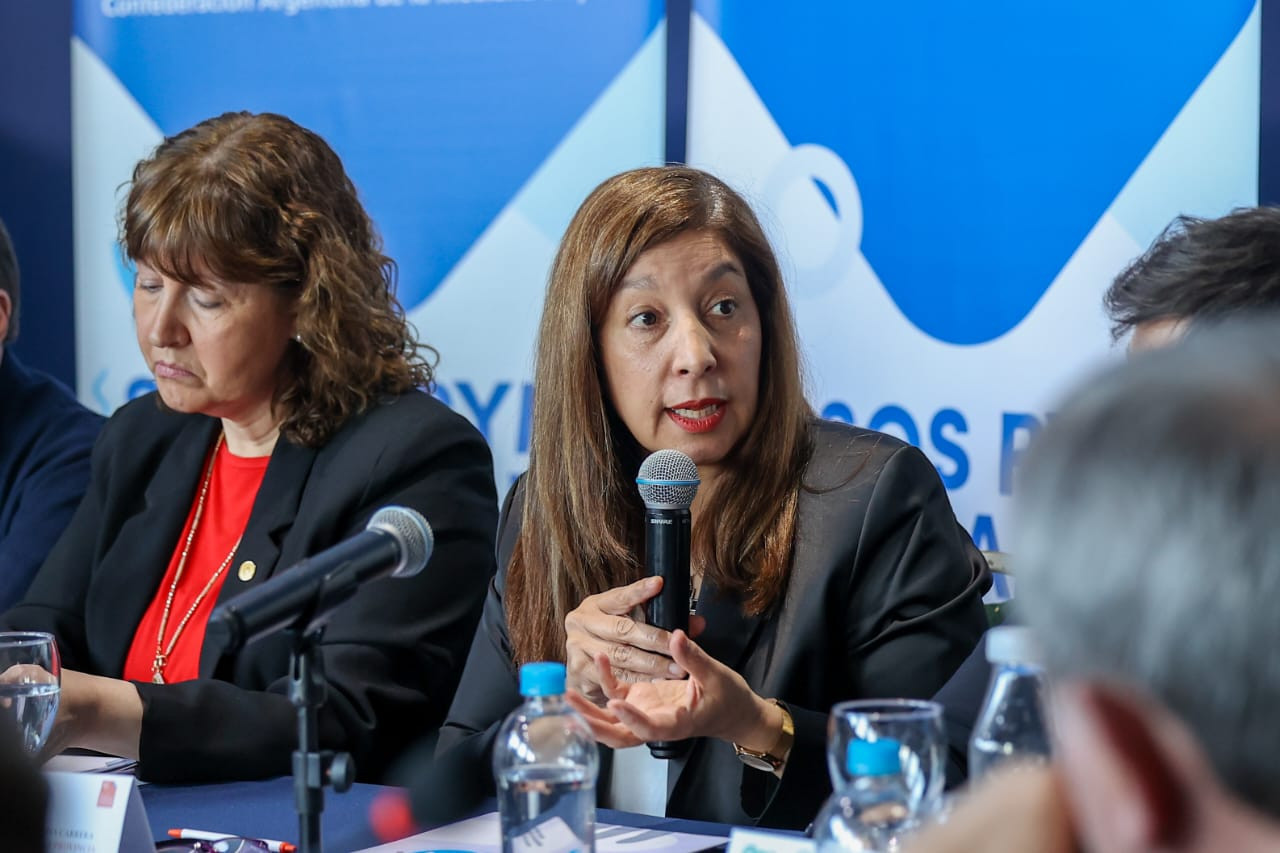Green Hydrogen
Patagonian governors meet in Ushuaia
Governor Arabela Carreras attended the Patagonian Regional Meeting in Ushuaia, together with her elected peers from the provinces of southern Argentina and the highest authorities of the Federal Investment Council (CFI) and the Argentine Confederation of Medium Enterprises (CAME).
Fecha: 14 de septiembre de 2023
The meeting was the setting for relaunching and strengthening this space for political, economic, social and productive integration. It was decided to support and advance an agenda that promotes the common interests of Patagonia, which was defined in a joint document.
The Governor of Tierra del Fuego, Antarctica and South Atlantic Islands, Gustavo Melella; the Vice-Governor of La Pampa, Mariano Fernández, and the elected Governors of Chubut, Ignacio Torres, and Santa Cruz, Claudio Vidal attended the meeting. The Secretary General of the CFI, Ignacio Lamothe and the President of CAME, Alfredo González, also participated in the event.
The leaders agreed to work on an amendment to the 1996 Santa Rosa agreement, updating its objectives and providing the region with an institutional framework in line with these objectives.
Governor Carreras considered it "fundamental" to give continuity to this work, which is being carried out between the public and private sectors, with the coordination of the CFI.

The governor highlighted the importance of "updating the objectives that we share as a Patagonian group, placing the most urgent issues on the agenda and enhancing not only the wealth of resources that Patagonia possesses but also adding value to our territory".
Finally, Carreras said that this region "shows high levels of economic activity, with an outstanding performance of small and medium-sized enterprises that contribute significantly to the national economy, so it is essential to work together to promote the development of the provinces".
Some of the aspects included in the document:
- The defence of Argentina's permanent and irrevocable sovereignty rights over the Malvinas, South Georgia and South Sandwich Islands, which is also an integral part of the Patagonian Region.
- The demand for compliance with the constitutional mandate for a new regime of federal tax sharing that reflects equity in distribution and compensates for the disadvantage of the Patagonian provinces.
The recognition of the right of the provinces to intervene with binding capacity in the decisions related to the completion of the hydroelectric power plant leases located in their territories because water is a resource of their original domain (Section. 124 of the National Constitution).
- Set integration with the Republic of Chile as the primary objective. Request the National State to build the required infrastructure in the bioceanic corridors and to coordinate national agencies to achieve this goal.
- Request the National State to carry out the infrastructure works of electricity and gas transport, roads, ports, airports and communications necessary for the productive development of Patagonia.
- In order to ensure that oil operators fully exploit secondary hydrocarbon resources or, failing that, permit them to be operated by regional firms, the provinces should coordinate a single policy and ask the National Congress for a specific regime that addresses the condition of mature basins.
- Promoting renewable energies and, in particular, calling on the National Congress to deal with the legal framework for green hydrogen.
- Development of regular coastal and overseas shipping lines.
- Protection of the Argentinean Sea's resources from intrusions of illicit, unreported, or uncontrolled fishing, as well as a requirement that national authorities implement regulations that let the fishing food industry add value.

